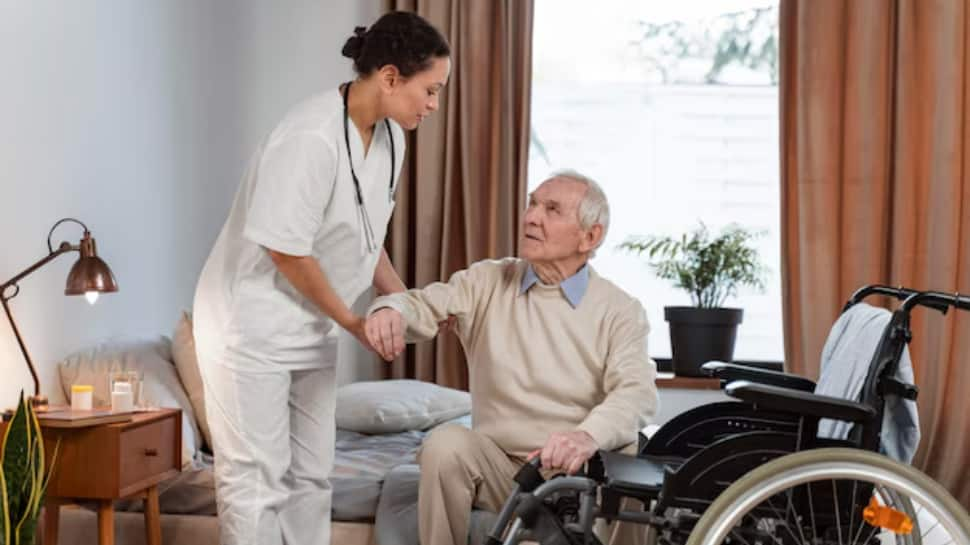Aging brings many changes, both physically and mentally. For senior citizens, maintaining cognitive health is a key aspect of overall well-being. While occasional forgetfulness is a natural part of aging, certain patterns may indicate a deeper concern, such as dementia.
According to Neha Sinha, Dementia Specialist, CEO & Co-founder of Epoch Elder Care, “Dementia is not just about memory loss—it is a condition that affects reasoning, comprehension, behaviour, and the ability to carry out daily tasks, making it one of the most challenging health issues for the elderly and their families.”
India today has over 8.8 million people living with dementia, a number expected to double by 2050. Behind each of these numbers is a family navigating the complex journey of caregiving, she said.
For most, caring for a loved one with dementia is filled with love, but also with exhaustion and emotional strain that only those experiencing it can truly understand.
Dementia Is Relentless
According to Neha, “Dementia is relentless. It is progressive, unpredictable, and unforgiving.” Families often wonder why they cannot manage dementia care at home despite living under the same roof.
The truth is, caring for someone with dementia requires specialized support, constant supervision, and a safe, structured environment. Even the most devoted family members can struggle with wandering, falls, sudden behavioral changes, and the emotional toll of balancing caregiving with daily responsibilities.
Normal Forgetfulness vs. Dementia
Normal forgetfulness happens to everyone due to stress, lifestyle, or age. It is part of life and usually does not affect overall cognitive function.
Dementia, on the other hand, is more than just forgetting. It involves a decline in multiple cognitive abilities, including reasoning, comprehension, and the ability to act appropriately, she said
According to Neha, “Memory loss in dementia typically begins with short-term memory—for example, remembering one’s childhood or identity may remain intact, while forgetting what was eaten for breakfast becomes common. This key difference helps families identify when forgetfulness may be a sign of something more serious.”
Regular Memory Health Checks
Families should be vigilant for unusual forgetfulness, such as confusing children’s names or forgetting recent events. Early detection is crucial. Cognitive screening tools, combined with brain scans like PET or CT, can aid in diagnosis, she said
Recently, blood biomarkers have also become available in India, offering more accessible ways to detect dementia. Early awareness allows families to seek professional help and provide the best care.
Can Lifestyle Habits Reduce Dementia Risk?
Yes, lifestyle plays a significant role. Factors like hypertension, diabetes, and hearing loss increase dementia risk. Loneliness, lack of social engagement, and insufficient cognitive stimulation also contribute. Diet, regular exercise, adequate sleep, and active learning can all help reduce risk and improve overall brain health.
Current Situation of Dementia in India and Pune
According to Neha, “Dementia cases are rising sharply in India, with around 9 million people affected, including many senior citizens. Families often struggle with how to care for their loved ones at home. The first step is awareness—recognizing that certain behaviors are not normal. Once aware, families can communicate effectively, provide support, and seek professional help when necessary.”
Pune has emerged as a hub for eldercare due to its strong medical infrastructure, large geriatric population, and connectivity to major cities. Areas like Balewadi offer upscale living, hospital support, and pleasant weather, making it an ideal location for senior living facilities.
Practical Strategies for Coping With Dementia
There are practical ways to support elderly people living with dementia and improve their quality of life:-
Routine and Structure: Predictable daily routines—including meal times, sleep schedules, and familiar bedding—can reduce disorientation and restlessness.
Cognitive Engagement: Reading, listening to music, puzzles, and light conversation stimulate the brain and promote memory recall.
Physical Activity: Light exercise, walks, or yoga help overall brain health and improve mood.
Nutrition and Sleep: A diet rich in fruits, vegetables, and proteins, combined with proper sleep, supports brain function.
Social Engagement: Regular interaction with family, friends, or community support groups reduces isolation and depression.
Caregiver Support: Family caregivers also need breaks and support to maintain their own well-being while providing care.
The Role of Caregivers and Professional Support
The home environment and caregiver mental health are critical in determining the quality of life for a person with dementia. Families who attempt to manage care alone often face exhaustion and emotional strain. Professional care options provide structured, compassionate support, ensuring elders’ safety, engagement, and dignity while allowing families to regain balance in their own lives.
For seniors living with dementia, Epoch Monet House having access to doctors, nurses, and trained caregivers is essential. Modern eldercare homes are designed to provide round-the-clock medical supervision, personal care, and emotional support, ensuring that every need of the senior citizen is met. With 24/7 nursing supervision, dedicated doctor spaces, in-house physiotherapy, emergency response systems, and advanced technology. This includes regular health check-ups, assistance with daily activities, physiotherapy, and a safe, structured environment that promotes comfort and dignity.
Such professional care not only supports the well-being of the person with dementia but also gives families peace of mind, knowing their loved ones are in capable and compassionate hands.
Dementia is a relentless, progressive condition that affects both seniors and their families. Awareness, early detection, lifestyle modifications, and professional support are essential for coping with this condition. By understanding the signs and providing the right care, families can help their loved ones live with dignity and comfort.

